The Provincial School for Horticulture and Technology has traditionally been a school with a real horticultural background. Currently, the school is busy reorienting itself. The reason? Horticulture is changing, and so the range of courses on offer must change with it. The Agrotechnology course is new, for instance. "Those who take this course can still become growers, but they don't have to," explains teacher Bjorn de Schoenmaeker.
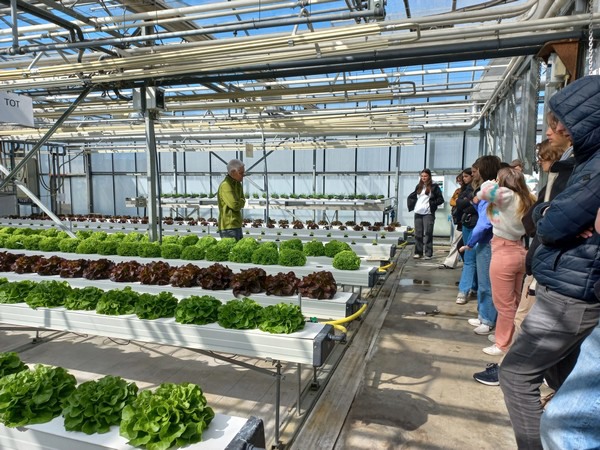
"Students used to come to us to learn the craft, but fewer and fewer are doing so. There are also fewer and fewer agribusinesses." The former horticultural school, previously called PITO Mechelen, is, therefore, now more than just horticulture.
For some years now, pupils have also been offered courses in science and technology. "A farmer or horticulturist is increasingly an agromanager these days. Besides producing and selling, the profession also involves a lot of environmental, energy, and food safety issues," sums up the teacher. What he means by this is that horticulture has changed seriously over the past 50 years.
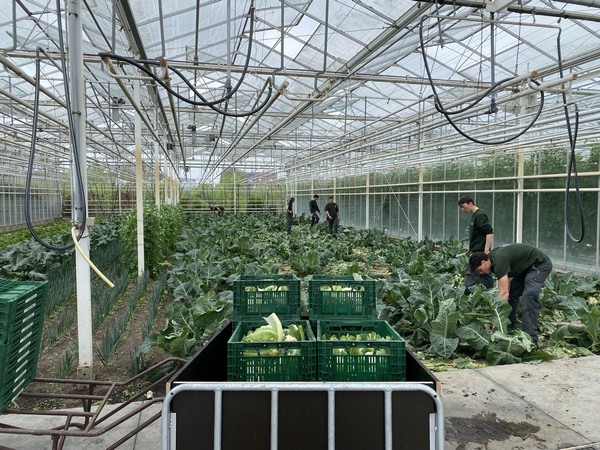
Theory immediately put into practice
The school is offering the new Agrotechnology course for the first time next school season. This change fits in with the educational reform underway in Flanders, explains the teacher of cultivation principles, plant, and growing environment.
During the course, students deal with all components and bodies that are important in horticulture. From cultivation techniques, biological control, and crop work to studying different marketing options and legislation.
"We study the plant (the basics) and its environment and together go about achieving the optimum cultivation and production yield using modern cultivation technology. So the theory is immediately translated into practice." Through company excursions, students are also introduced to the future field of work.
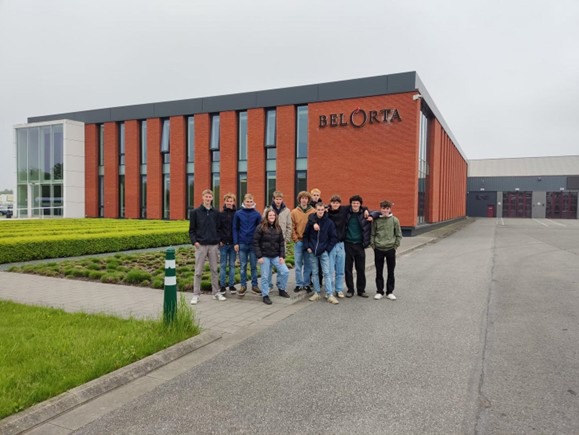
Demand from companies
Equally important, the demand for innovation came from the practice itself. "Companies like Bakker Belgium asked us to train people, as did growers who knocked on our door asking if we would train people who also have an affinity with technology, for example."
Currently, those people, who have green knowledge but also technical knowledge, are scarce. "Students still learn how to plant tomatoes with us, but we also teach them other things in the new training."
After six years of school, PTS Mechelen wants students to be able to continue learning or to apply for jobs at, for example, a testing station, be fitted into a production company or even start up their own business.
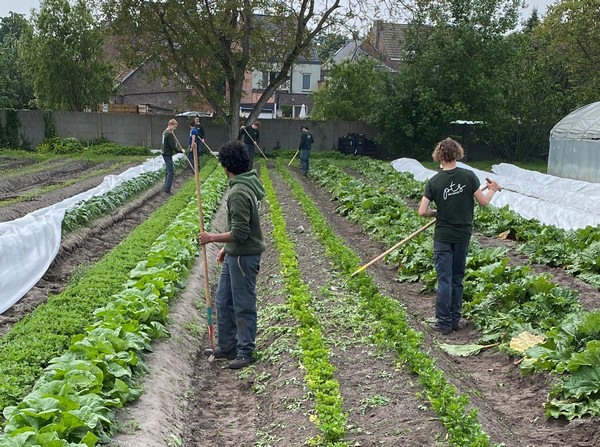
Surprise
Bjorn noticed during an open day in May this year that future students were surprised by what horticulture has to offer. The same amazement is shared by other people from outside. "People wrongly still think that horticulture is just putting plants in the ground when it is much more science."
At the school, for learning 'the craft,' there is also a greenhouse infrastructure. "That greenhouse may be 30 years old, but it did get an updated climate computer installed last year."
This is the revamped Hoogendoorn, ready for 'Het Nieuwe Telen' (The New Cultivation). "We do that with and through students, ebb and flow systems, cultivation gutters, growing racks equipped with modular LED lights for experimenting with propagation techniques and optimizing growing conditions ... and I can think of a few more ... in short, we are armed to send green blood surging through veins!"
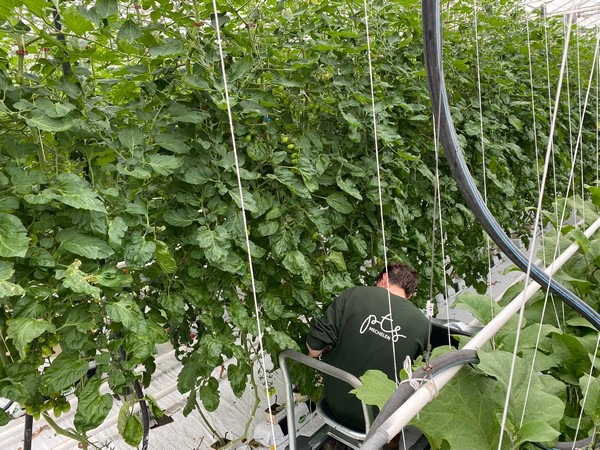
Future prospects for apprentices
So what are the pupils' future prospects? "Very broad," replies the teacher. "Options to work are available in all kinds of agribusinesses such as quality services, research centers, or marketing organizations, but pupils can also become future farm managers. Or further study for those who can't get enough of this subject matter."
Bjorn believes it is important to be very honest. Simply training tomato pickers, however, no longer suits these times, he believes. "Flemish students, just as in the Netherlands, are increasingly too expensive for harvest work, for seasonal work. So we won't deliberately train those people here either."
Like our own greenhouse, links with practical farms are also important. "We don't have CHP ourselves, for example, but if we want to teach students about this, we can always visit a grower with CHP."
Similarly, auction BelOrta is also nearby to learn about marketing. The school also has its own school shop with a webshop for this purpose. "What we have left over, we deliver to the auction," he says. According to Bjorn, PTS Mechelen is "perfectly located" with growers, the auction, and the testing station in Sint-Katelijne-Waver close by.
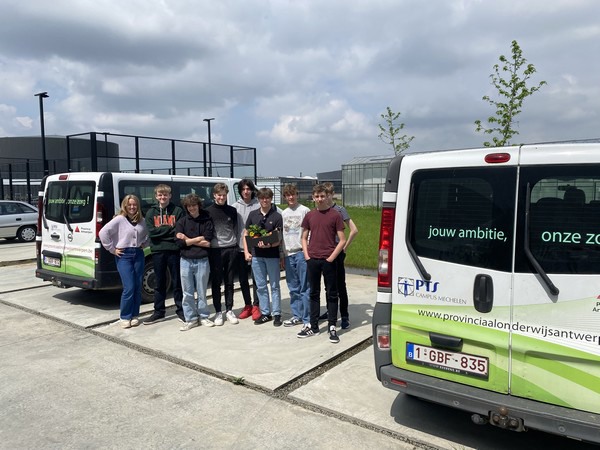
Ready for the future
By adjusting the training on offer and telling a complete, diverse story about horticulture, PTS Mechelen aims to change people's perception of the sector. Naturally, the hope is that this will also increase the number of apprentices enrolling. "At the moment, we have eight apprentices in the fourth year. I expect all of them to succeed. Next year, in the first year with the Agrotechnology course, we hope to double that."
The school in Mechelen is not the only one in Flanders. There are four more schools that offer Agrotechnics. "We have to stand behind what we have to offer," the teacher concludes. "Our aim is not to lure students. Whoever you attract, you have to reward." They certainly want to do that in Mechelen, in addition to telling the story of the changing sector. "It would be nice if we also achieve that people start thinking about where their asparagus or their peppers come from."
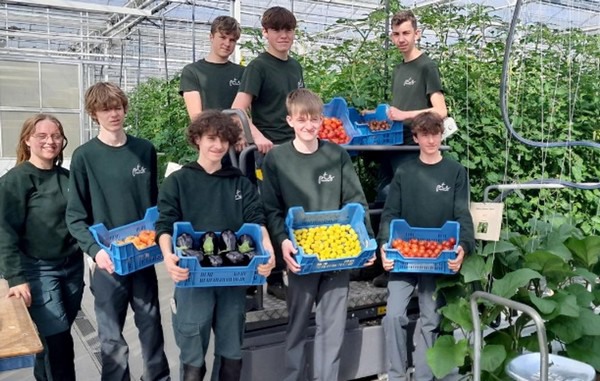
For more information:
PTS Mechelen 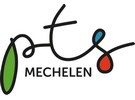
Antwerpsesteenweg 145
2800 Mechelen
Tel.: +32 15 28 53 20
[email protected]
www.ptsmechelen.be
